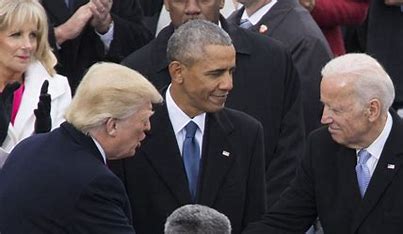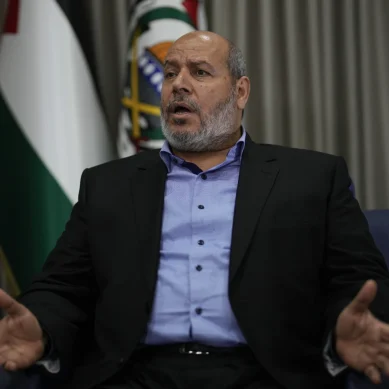
All told, although President Barack Obama’s administration poured far more energy into the effort to close Gitmo than his predecessor George W. Bush’s administration had, Obama failed during his terms in office to do so.
In his last year, Obama continued to push hard with the rallying cry, “Let’s go ahead and get this thing done!” He called for renewed federal trials on US soil and prisoner incarceration in the United States, noting that Guantánamo was “contrary to our values” and “undermines our standing in the world” – not to mention the $450 million annual price tag for keeping it open.
He put the blame for failure squarely on the growing political divide in the country and openly worried about what it meant not to succeed. “I don’t want to pass this problem on to the next President, whoever it is,” he said. And, of course, we know just who he was.
Not surprisingly, passing Guantánamo on to Donald Trump fulfilled whatever misgivings he had. Unlike Presidents Bush and Obama, Trump displayed no interest whatsoever in closing it. His instinct was to reaffirm its standing as a legal black hole.
On the campaign trail in 2016, in fact, he swore that “we’re gonna load it up with some bad dudes, believe me, we’re gonna load it up.” On taking office, he almost instantly signed an executive order to keep Gitmo open.
Still, no new detainees were actually added during his term in office. In 2020, he even suggested it should house people infected with Covid, but as it turned out, expanding its activities was as elusive a goal for Trump as closing it had been for his predecessors.
While his threats of adding inmates amounted to naught, his presidency basically put that prison camp on pause. He even stopped the process of transferring five detainees cleared for release by the Obama team. Only one prisoner, Ahmed Muhammad Haza al-Darbi, who had pleaded guilty in 2014 in the military commissions, was released during Trump’s time in office.
Meanwhile, the military commissions remained essentially stalled on his watch and Congress continued the ban on moving any of the detainees to the US.
When Joe Biden entered office, 40 prisoners remained at Guantánamo Bay. In his first weeks, his aides called for a formal review of their cases and his spokesperson Jen Psaki announced the administration’s intention to close the prison camp before he left office. Having learned from Obama’s mistakes, however, Biden made no sweeping public promises.
His administration nonetheless put renewed energy into both transfers and trials. The military commissions have indeed ramped up in recent months. Pretrial hearings have recently been held in the four pending military tribunal cases. In addition, plea deals that would take the death penalty off the table are reportedly being negotiated for the five 9/11 defendants.
Three of the five detainees cleared for release by the Obama administration have finally been transferred to other countries, while all but three of the 27 prisoners not cleared when Biden took office have been greenlighted to go home or to a third country. In doing so, several previously blocked thresholds were crossed. As of early 2021, when the government cleared detainee Guled Hassan Duran, it signaled that, for the first time, there was a willingness to release even those who had been subjected to torture while held at CIA “black sites” in the early years after 9/11. The point was made even more strongly three months later when Mohammed al Qahtani, who experienced some of the worst treatment at American hands, was also finally released.
Meanwhile, in September 2022, President Biden appointed former State Department coordinator for counterterrorism and former ambassador to Kosovo, Tina Kaidanow, to oversee the transfer of prisoners cleared for release. While her position doesn’t replicate the formidable office of the Special Envoy for Guantánamo Closure that Obama established and Trump nixed, it is a promising move. The job of arranging each prisoner transfer, assuring the security of the detainee, and assessing that the release will not pose a danger to the United States is challenging but achievable, as prior releases have demonstrated. All told, recidivism rates for Guantánamo detainees, as reported by the Director of National Intelligence, have been 18.5%, though only 7.1% for those released under Obama.
In the End…?
The last question, these 7,627 nightmarish days later, might be this: Are there any options for the final Gitmo prisoners? In 2017, military defense lawyers Jay Connell and Alka Pradhan, joined by researcher Margaux Lander, pointed out that, under international law, victims of “torture, and cruel, inhuman and degrading treatment” have the right to full rehabilitation. In addition to seeking the removal of the death penalty in their cases, the 9/11 defendants at Gitmo have reportedly asked for access to a torture rehabilitation program.
Pradhan, who represents 9/11 defendant Ammar al Baluchi has summed the situation up well:
“The United States has utterly failed to give these men either a fair trial or medical treatment for their torture in violation of their legal obligations. Most of the evidence in the 9/11 case is torture-derived, and the men are deteriorating quickly from the brain and other injuries inflicted by US torture nearly 20 years ago. The Department of Defense has confirmed that they don’t currently have the ability to provide complex medical care at Guantanamo, so the most ethical solution is to transfer the men to locations where they can obtain the care they require.”
In fact, after all these years in prison, releasing those who might otherwise still stand trial and putting them in rehabilitation centers might indeed be a good idea.
There are many ways to address a wrong. Arguably, the greater its magnitude, the more leeway should be given for subsequent actions. As the Biden administration has taken steps towards closing Gitmo, perhaps the gesture of sending the defendants in the military commissions to rehabilitation programs is a good one.
For years, General Lehnert has told Congress, media outlets, and anyone who would listen that it remains imperative, however difficult, to finally shut the prison down. As he has written, “Closing Guantánamo is about re-establishing who we are as a nation.”
It might not quite accomplish that, but it would certainly be a formidable step in that direction. After all, its legacy of torture, indefinite detention without charges or trials, and the reckless disregard for the rule of law will no doubt haunt us for years.
There is no way to fathom the harm caused by the torture, cruel treatment, legal limbo, injustice, and dehumanization that has become the definition of Guantánamo. But for the first time in all these years, its actual closure might realistically be on the horizon. One can always hope, right?
- A TomDisptach report











